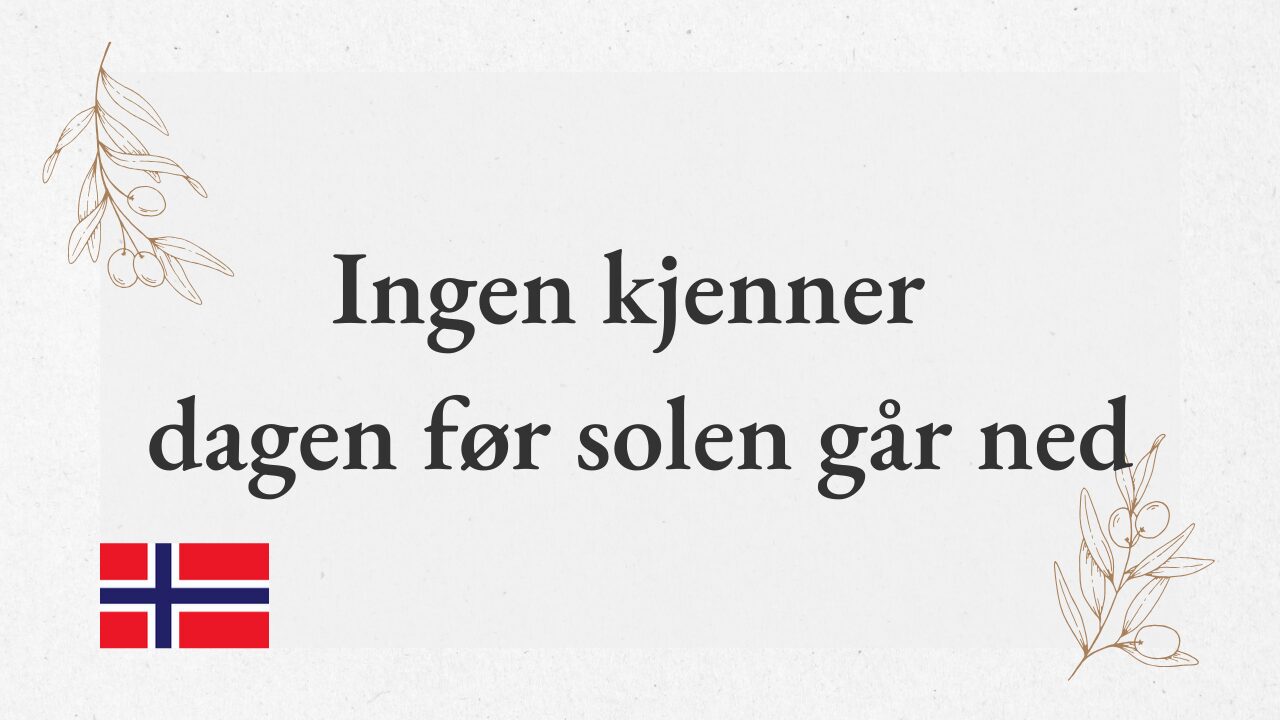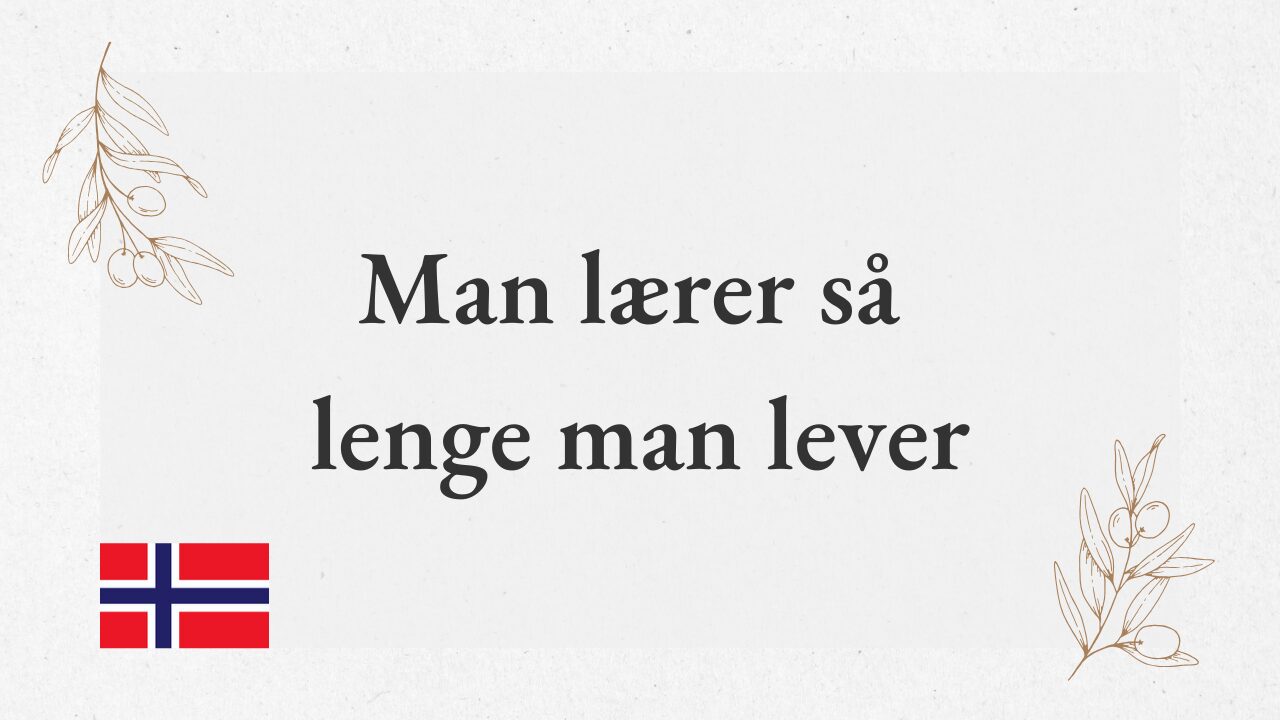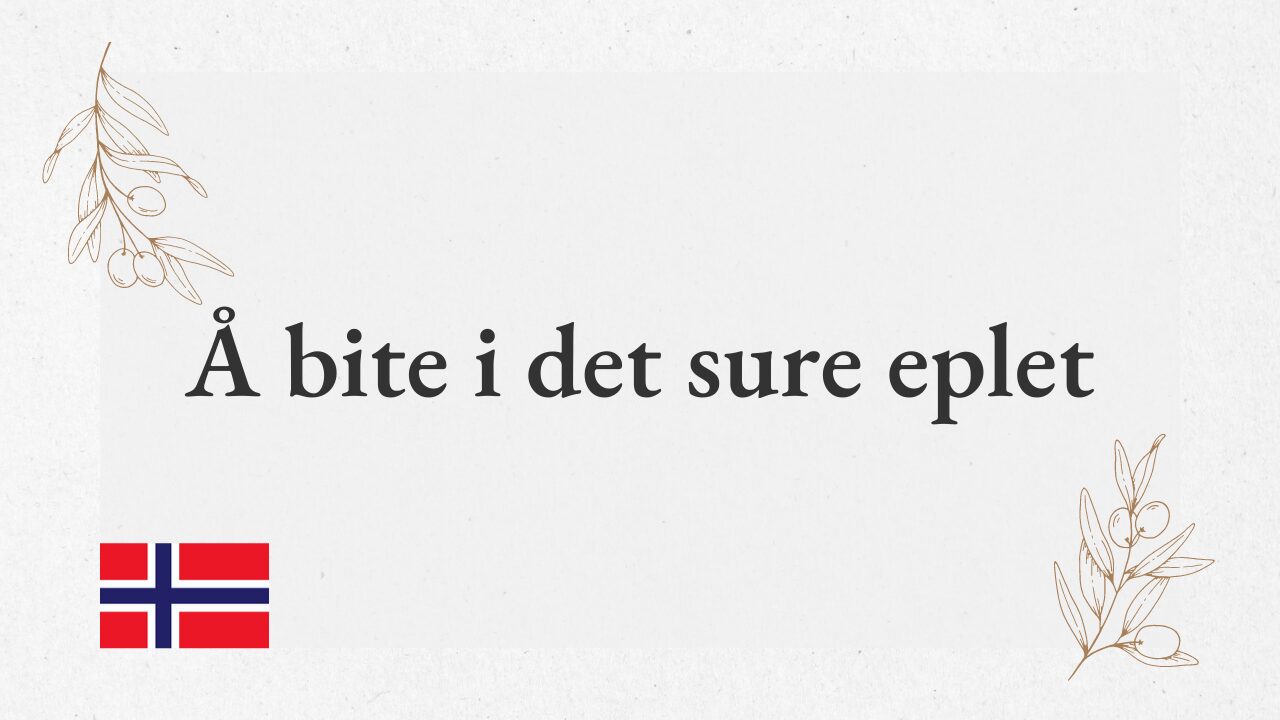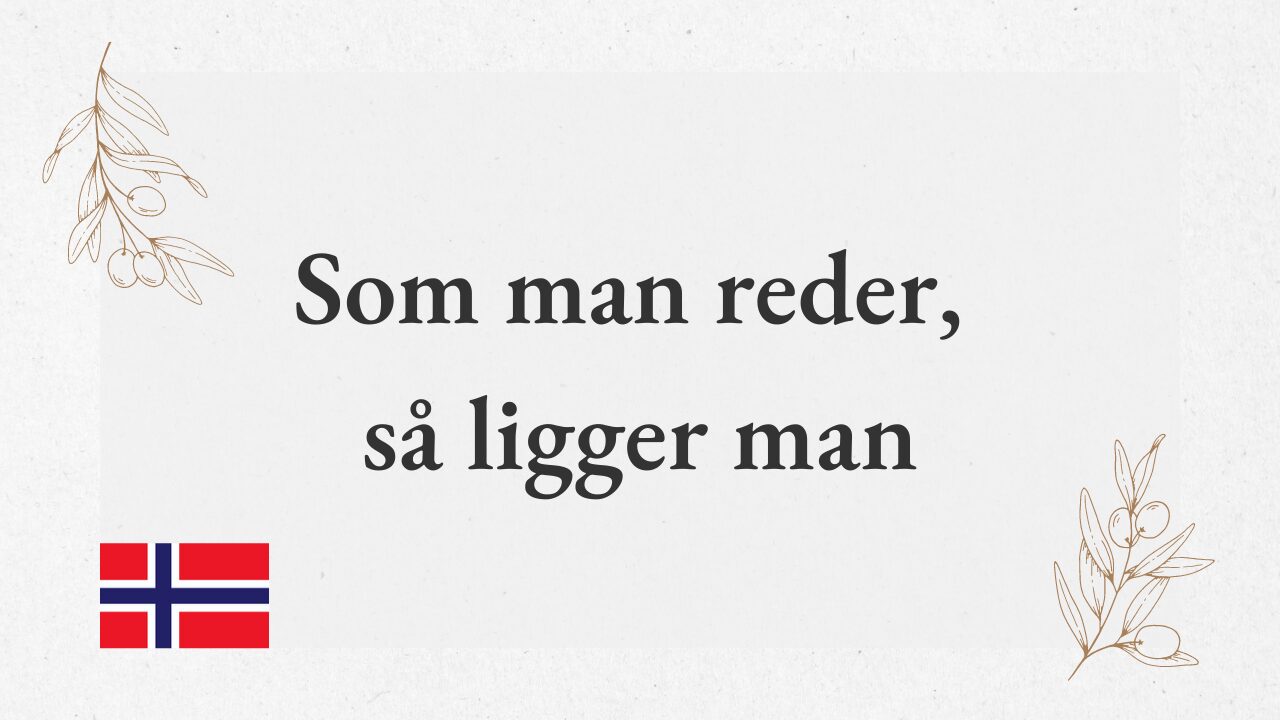“Den som venter på noe godt, venter ikke forgjeves” – Good things come to those who wait
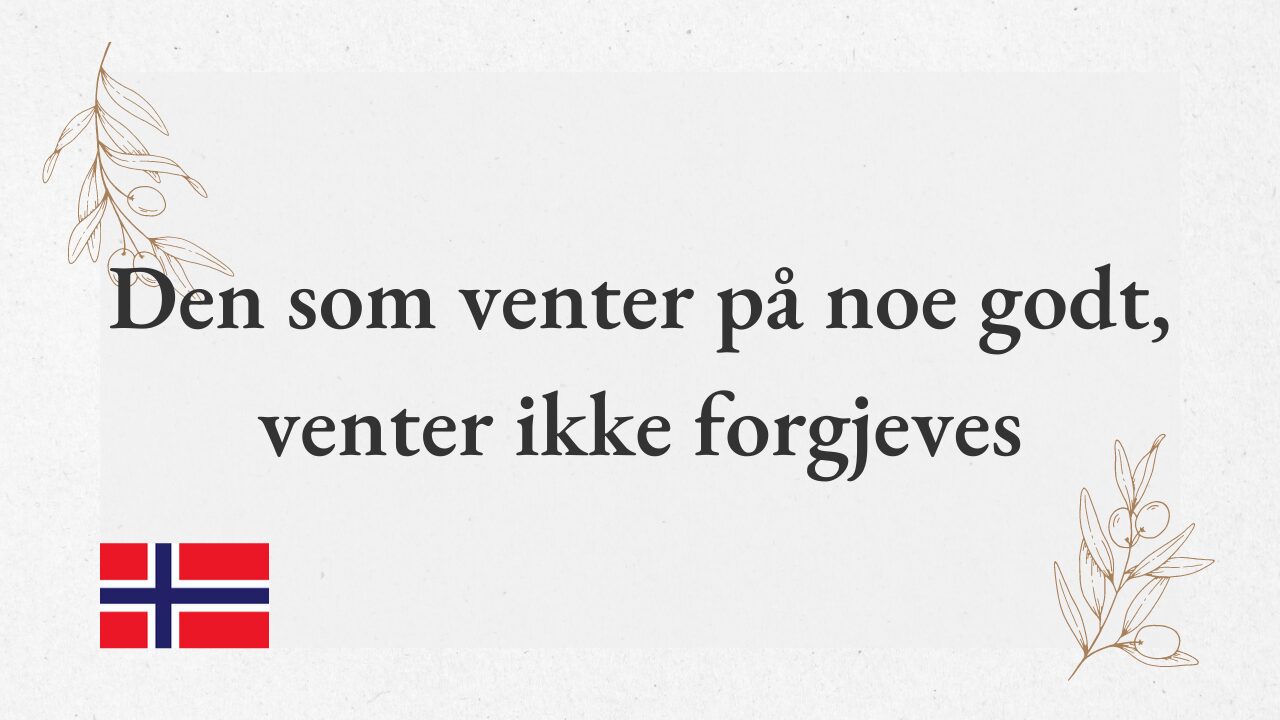
Meaning
“Den som venter på noe godt, venter ikke forgjeves” literally translates to “Those who wait for something good do not wait in vain.” This expression conveys the message that “good things take time, but they are worth waiting for.” When expecting a positive outcome or reward, it emphasizes the need for patience, as the effort will eventually be rewarded.
There is a similar expression in English: “Good things come to those who wait.” This phrase also reflects the idea that valuable results come with time. In Japanese, the saying “All good things come to those who wait” conveys a similar meaning, emphasizing the virtues of patience and hope. In many cultures, there are expressions that highlight the value of results achieved through time and effort.
Origin
This expression is influenced by Norway’s harsh natural environment and historical living conditions. Throughout Norwegian history, agriculture and fishing were key industries, and people were heavily dependent on weather and seasonal changes. For example, the harvest of crops and fishing yields were subject to the conditions of nature, so people needed to be patient, often waiting for long periods before good results could be achieved.
In particular, Norway’s long, harsh winters meant that crops had to be carefully grown during the short summer months, with people waiting for the right moment to harvest. Fishermen also waited for good weather conditions before setting sail, which was a routine part of their lives. Historically, this patience in daily life emphasized the value of waiting for good outcomes, even if it took time.
Moreover, during the Viking era, sailors also practiced waiting for favorable winds before embarking on voyages. As a seafaring people, Vikings relied on wind and waves for successful navigation. This meant that even during periods of bad weather, they needed the patience to wait for the ideal conditions. In this way, waiting for the best possible outcome, by not opposing nature but rather aligning with it, became deeply ingrained in Norwegian culture, influencing the meaning behind this proverb.
Cultural Background
Norway is a country with a harsh natural environment, where the seasonal changes have fostered a culture of patience and acceptance that things progress slowly. This expression is reflected not only in personal life but also in work and social interactions.
Norwegians value taking a long-term perspective on things rather than expecting rapid results or instant success. The belief that effort and patience will eventually bring about good outcomes, even if it takes time, is a central part of the thinking behind this expression.
Usage
This expression is used in situations where someone is waiting for something, or when the desired results take time to materialize. For example, it is often used in long-term projects, job searches, relationships, or other areas where one feels that the wait is worth it. It is frequently used to offer encouragement when someone is confident that positive outcomes will emerge after a long wait.
Conclusion
“Den som venter på noe godt, venter ikke forgjeves” is a Norwegian proverb meaning “Those who wait for something good do not wait in vain.” It emphasizes that patience and expectations are ultimately rewarded. This expression is particularly used to offer encouragement during long processes or when the outcome is uncertain.

